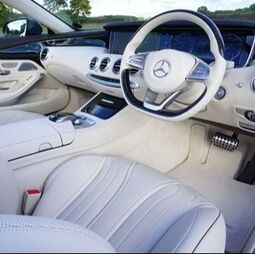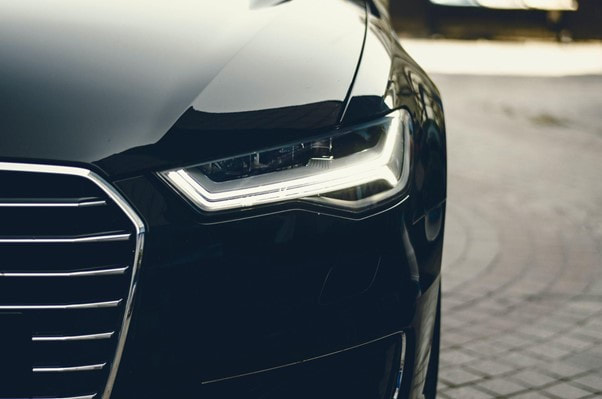|
A balloon payment is a one-off lump sum that you pay to the lender at the end of your car loan’s term. Balloon payments are more common with car loans for businesses and are a great way to help reduce your monthly repayments and free up cash. However, there are a number of advantages and disadvantages that you need to weigh up before deciding to go down the path of a loan product with a balloon payment. Advantages Cash flow The most obvious reason to make a balloon payment at the end of the loan term is so you can free up cash with lower payments over the life of the loan. For businesses, this can be important as the funds can be used in other areas to help you grow your business. If you’re able to save on the upfront costs and delay some of those costs, you could potentially be in a stronger financial position in the long run. Keep the car new One of the other key reasons you might consider this type of loan product is that it allows you to sell the vehicle at the end of the lease term to make the balloon payment. You’re then able to go and take out another loan to purchase a new car in the same fashion. The allows you to keep the car new which can reduce the cost of servicing and maintenance as the car is generally going to be under the manufacturer’s warranty. You’ll also be able to have a more technologically advanced vehicle. Disadvantages Higher overall cost Generally speaking, if you’re using a loan product with a balloon payment, the overall cost of the loan in the long term is likely going to be higher. This might be OK if you’re putting the funds to better use in the short term, however if you’re not, this type of loan can become a hindrance. Depreciation It’s hard to predict what the value of the vehicle might be when the term of the loan ends. If a car has depreciated in value by more than expected, you might find yourself in a situation where you need to pay back more than the value of the car. This large payment could catch you unaware if you’re not prepared for it. See your vehicle finance options in less than 5 minutes The holiday period is normally a time when people spend more hours at home and some start looking around for a new car. If you’re looking at a loan to purchase a new or second-hand car, it’s important to consider the best way to finance it. The most common ways to buy a car is with cash, or with the assistance of a loan. Which will likely either be a car loan or a personal loan.
Personal Loan Traditionally, personal loans have been used for things like weddings or holidays. However, it is possible to use the funds to purchase a car. The great thing about using a personal loan to buy a car is that it can be faster to obtain. You then have the flexibility to spend the funds from the personal loan as you see fit. However, this might cost you in the long run. A personal loan is typically, unsecured debt. This means that there is nothing backing the loan other than your ability to pay it off with your income. From a lender’s perspective, this is a far riskier type of loan, as there is no collateral in place, in the event that you lose your job and are unable to make your regular repayments. Because of the additional risk, a personal loan will normally attract a higher interest rate which will then mean you’re going to pay more in interest over the life of the loan. Given that a personal loan is more flexible, you can use the balance for things aside from a car, however, this results in more debt that you’ll need to pay off. Car Loan When you take out a car loan it will typically be secured by the car itself. This gives the lender a degree of certainty around the loan. Because of this, you will likely be paying a lower interest rate than you would with a personal loan. However, the process might take a little longer as there will likely be some requirements from the lender around what type of car you’re able to purchase. The other consideration with a car loan is where you get it from. These days many people look to get finance through the dealer. While this might be the easiest option, it will likely not be the best deal to suit your needs. Dealer finance is another way a dealership can increase their profits and they are not working with multiple lenders to find the best deal. If you are looking to take out a car loan, it’s best to speak with a broker in advance and gain a pre-approval. You’ll then know that you’re getting the best option available to you and also what your budget is going to be before you start the search for a new car. See your vehicle finance options in less than 5 minutes In the current low interest rate environment, there are a lot of attractive offers for car finance, particularly coming from dealers.
In some cases, you can even find dealers offering 0% finance. While that might look good on the surface, it’s important to understand that the low interest rate might very well come with some additional costs that you hadn’t anticipated. Here are a few things you need to consider before taking on such a low interest rate. The Car’s Price If you’re getting a deal with 0% interest, it’s possible that you will have to pay more for the car itself. It’s highly unlikely that you’re going to be able to negotiate on the price of the car, and you could even pay far more than you need to. Trade-In Value of Your Old Car If you are looking to trade in your old car, you might not get the best possible price from a dealer if you require a lower interest rate on your car loan. There’s generally a spread that a dealer must make on the purchase of a second-hand car, and that could mean you get a lower price and/or you pay more for your new car. Higher Deposit In many instances, it’s possible to get a car loan and pay little or no deposit. This is unlikely if you are getting a very low interest rate as there is some risk to the lender and dealer. Finance is a trade-off at times, and you will need to provide something more if you need a lower interest rate. Shorter Loan Terms Generally speaking, low interest rates or even introductory offers are only for short set periods of time. While it might be possible to get a standard car loan over seven years, if you’re getting a low interest rate, it might be for only two or three years. If you have a shorter term, then a low interest rate might not make that much sense, because your overall payments will be higher. Fees Sometimes, these type of interest-rate offers come with other fees and charges that soon add up. It’s important to look at the total cost of the car, the finance and the repayments over the lifetime of the loan; not just how much your interest rate is in comparison to others as it does not always tell the full story. Lack of Choice In most instances, low interest rate offers are limited to select vehicles within the dealership. While this might not be an issue, if you are in the market specifically for a certain type of car, you might not find what you want. It is far better to have a finance broker look at your personal situation and find a loan that suits you, rather than focusing on getting the lowest interest rate. Often, the interest rate itself is the least important part of getting finance, even though it is the most talked about. See your vehicle finance options in less than 5 minutes  Those individuals that work for themselves or run a business can, at times, find it a little trickier to get different types of loans. Lenders like to see regular income and ongoing work to give them some degree of comfort that a borrower will be able to repay the loan.
A self-employed borrower will have an income, however, it’s likely not going to be as regular as someone who is paid a salary. With that in mind, there are still options that self-employed borrowers can look at, to get a car loan. Lo-Doc Loan A lo-doc loan is effectively a loan given to a borrower that doesn’t have as much income documentation as a regular wage earner would. When assessing an application for a lo-doc loan, a lender will want to see other forms of income verification such as an accountant’s letter, BAS statements or tax returns. Given there is less evidence to suggest a borrower can make their repayments, the interest rate can be higher than a different type of loan product. It might be possible to offset this higher rate by putting up a larger deposit, or by securing the loan with the car. A secured car loan means the car is put up as security which gives the lender an additional degree of comfort as their risk is reduced. If a borrower can’t make the repayments, they are able to sell the car to recoup any costs. If you’re trying to get a lo-doc loan, it’s important that you have a good credit score, which means ensuring you’ve been paying off all your debts and bills on time in the past. A good credit score means you’re someone who can manage debts well and this should give the lender confidence that you will do the same now. A Chattel Mortgage If the car you’re looking to purchase is for business purposes, then one option you could look at is a chattel mortgage. A chattel mortgage is a type of car financing for business owners. If you use a car for work more than 50% of the time in the day-to-day operations of running your business, you might be able to qualify for this type of finance. The benefit of using a car for work is the ability to deduct some expenses from your taxes. However, it’s important to seek the advice of a qualified accountant prior to taking out this type of loan. Business owners might not be protected by the National Consumer Credit Protection Act (NCCP), which could be an issue for some purchasers. See your vehicle finance options in less than 5 minutes |
EDITOrCategories
All
Archives
December 2023
|
|
Read about us on KochiesBusinessBuilders and Linkedin
Partner with Adobi Mortgage Solutions Contact Bruce Johnstone (03) 9996 8553 or email [email protected] |
©2021 ADOBI® MORTGAGE SOLUTIONS ABN 94465268443
Suite 405, 585 Little Collins Street, Melbourne, VIC 3000 Telephone: (03) 9996 8551 Credit Representative Number 536529 authorised under Australian Credit Licence 384324 Your complete financial situation will need to be assessed before acceptance of any proposal or product Please review our Lenders, Terms of Use and Privacy Policy Member 87449: AFCA - Australian Financial Complaints Authority Member M-351557: FBAA - Finance Brokers Association of Australia |






 RSS Feed
RSS Feed


